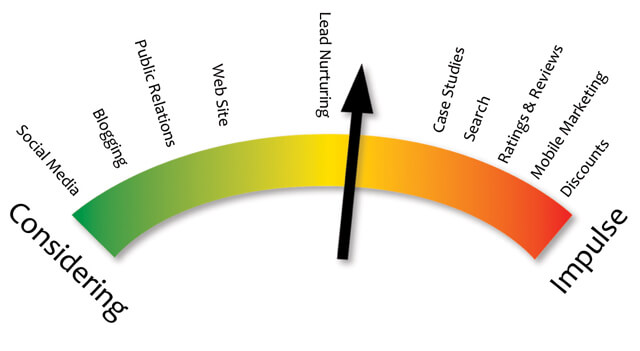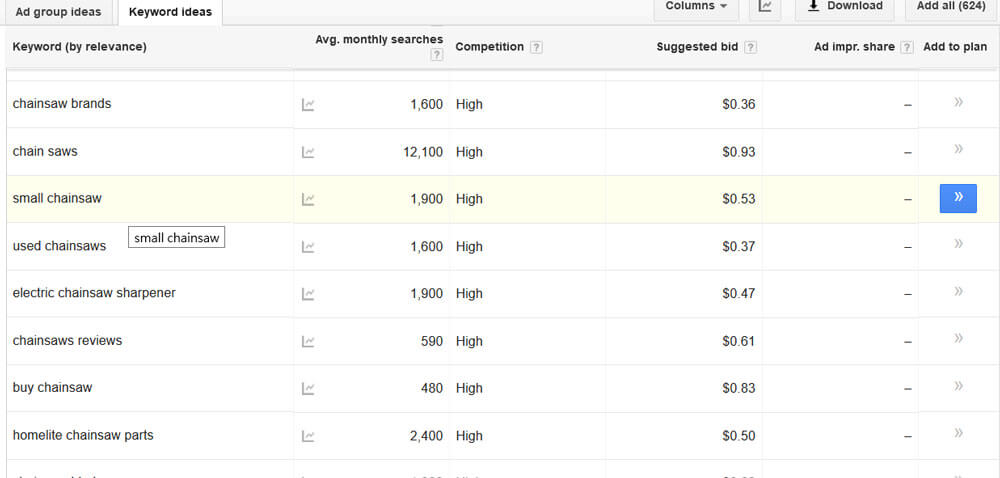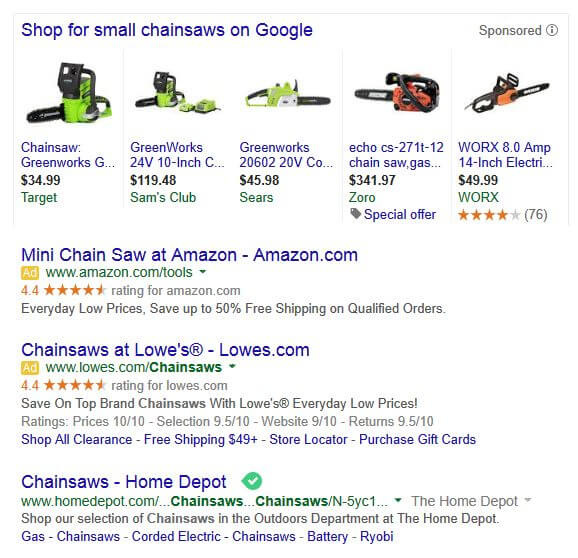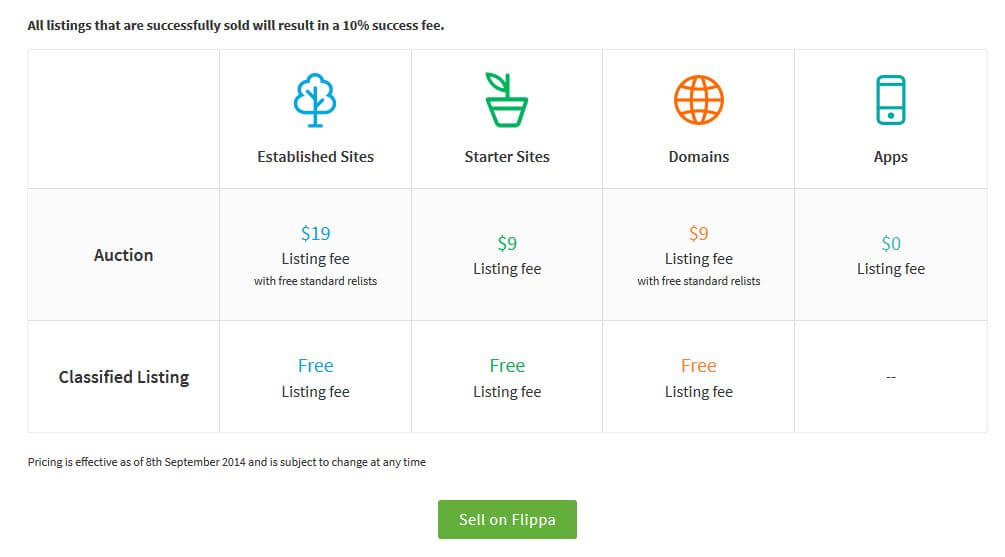How to Do Keyword Research for eCommerce
I’m going to tell you how I do keyword research for ecommerce websites. I think my methods are profitable, but I have limitations — I’m a one-trick pony when it comes to finding a niche. I mainly focus on the profits. Show me the money! For me, keyword selection is about one thing, — buying intent. My biggest successes involve pages that offer a product, whether that is Amazon, clickbank or an e-commerce type of website. If that sounds like what you’re after, let’s get started!
 To begin with, we need a product. Profit is a big deal. As you do your keyword research, you’ll find various products that have differing profit margins. Something you really need to consider is this — if it’s going to take just as much effort to rank a page to sell a product worth $50 as a product worth $100, your website will be twice as profitable, with the same amount of work, if you go with the higher figure product. Doubling the ROI, for simply selecting one keyword vs anbrandother, is a smart thing to do.
To begin with, we need a product. Profit is a big deal. As you do your keyword research, you’ll find various products that have differing profit margins. Something you really need to consider is this — if it’s going to take just as much effort to rank a page to sell a product worth $50 as a product worth $100, your website will be twice as profitable, with the same amount of work, if you go with the higher figure product. Doubling the ROI, for simply selecting one keyword vs anbrandother, is a smart thing to do.
As we do the research, we’ll see keywords having various quantities of monthly searches. We will take the monthly search volume and work that into the equation. For instance, if something sells for $50, yet has twice the search volume, that makes it on par with another keyword that is twice as profitable, yet a half of the search volume. In other words, a 2000 monthly search keyword that sells for $100 is the same as a 4000 monthly search keyword that sells for $50 each.
We’re going to skip product names. They’re too hard to rank for. Amazon is already ranking #1 for the product name, most likely. The manufacturer of the product is probably #2. Next, everyone else and their uncle is trying to rank for the product keyword + “review”. By default, people try to optimize for the individual product name. There is not enough ROI for all you will have to invest to actually rank for the exact product name.
How are we going to do it then? We’re going to start by taking some expensive product. Then, we’re going to put ourselves into the head of a potential buyer. I don’t care if that sounds cheesy, it’s exactly what you have to do. Next, we’re going to imagine scenarios that would happen that would cause a searcher to want to buy that product. Except, the searcher doesn’t yet know they want to buy your product, you’ll have to sell them on it. We’re going to rank for a general category that would indicate they want to buy this product, because they used various buying intent keywords.

When I say buying intent, I’m not just talking about “buy”, “purchase”, “cheap”, “best”, etc. Yes, those are buying intent keywords, however — they’re extremely difficult, because they’re the same ones everyone else uses. Sure, I’ll check out the competition on them — but the real gems you’re going to find are more product-specific.
Here is an example of my process. I’ll try for an Amazon product. What comes to mind that should be worth over $100? I’m thinking chainsaws. Next, I go to Google’s keyword planner. I type in chainsaws. I’m looking for a type of category for chainsaws. Something that is popular for searchers, but not obvious to other SEOs, and not something they’re trying to rank for. I’ll know I’m successful when I google the term, and find top ranking results that don’t even have the complete term in the title.
I’m skipping brands, they will be impossible to rank for. I’m skipping the obvious things people would want to search for … “best chainsaw”, or “cheap chainsaws”, I have a gut feeling they’re going to be too difficult, so I’m not even going to look them up. I see one and get a good feeling about it … “small chainsaw”. Is that a buying intent keyword? Oh yes it is! Someone would only search for “small chainsaw” if their intent was to buy a small chainsaw — what other purpose could there be?

Keyword Ideas for “Chainsaw” – Google Planner
I go to Google. I want to see what the top 10 results look like. I type it in, and press enter. The #1 result? “Chainsaws – Home Depot”. Oh yeah, baby! “Small” isn’t even in the title of the #1 result! I start glancing down the list, 4, 5, 6, 7, 8, 9 and 10 don’t even have the word “small” in the title.

Top 3 Results of “small chainsaws” on google
Out of habit, I go to namecheap and see whether the EMD (exact match domain) for .com is available. Nope, but .net is. (I don’t really go for EMDs anymore, I try to select a brand name, but looking for the EMD sort of shows me how tuned-in other SEOs are for that keyword). On a 1900 exact search keyword, if you’re ranked in the top 3 — I’d say you’re getting AT LEAST 6 visits per day, or 180 views per month, but then you’re going to rank for other longtails so hopefully you’re getting 300 visits per month. If you have a 2% close rate, you’re making 6 sales per month. If the chainsaws are worth on average $100 each, and your Amazon account is at 6% commission rate, you’re making $6 commission per sale (but I find people are always buying even moreodds and ends when they go to Amazon, so let’s call it an average of $10 per sale).

Search Results on NameCheap for an EMD (exact match domain)
You’re looking at $10 * 6 = $60 per month. A website can be flipped for 16 months worth of income, once it’s received 3 months average profits. $60 * 16 months = $960. Things never work out as they do on paper, but it’s important for you to visualize what realistic profits are available from the keyword’s search volume and the potential sales you could make.
Now, considering the investment you have to put forth, can you cover the content creation for a 15 page website, and buy the link packages, and assume the risk that you may end up not ranking, for well under $960? If you consider it worth it, then you move forward and create the website and start promoting it. Perhaps other sites would be even more profitable, so perhaps you’ll want to continue doing keyword research.

I don’t use any paid tools for my keyword research, only Google’s keyword planner and then seeing how competitive it is by checking out if titles in the top 10 are optimized. In this case, 8 out of 10 of the entire top-10 didn’t even have the full keyword in the title. Most didn’t have “small” in the page snippet. To me, that says the pages are not optimized for the term. Without a doubt, if they were to throw “small” into their titles, and optimize their text on-page, they would be near impossible to beat — so I wouldn’t be interested. However, this example is pretty close to what I would chase after if I wasn’t so dern busy with other SEO projects. PS, I’m not building a site for “small chainsaw”, run with it if you want. However, I suggest you use the same process to find your own opportunities like this, that are potentially worth even more.

Comments